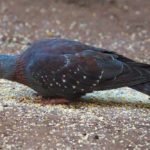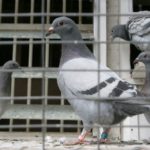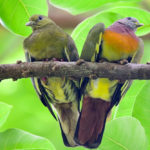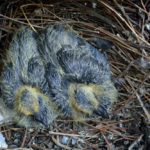We all want to keep our pet pigeons as healthy as possible, and while that of course includes taking your pigeon to the vet regularly, it also means regularly checking that your pigeon has worms, which can cause a host of problems if left untreated.
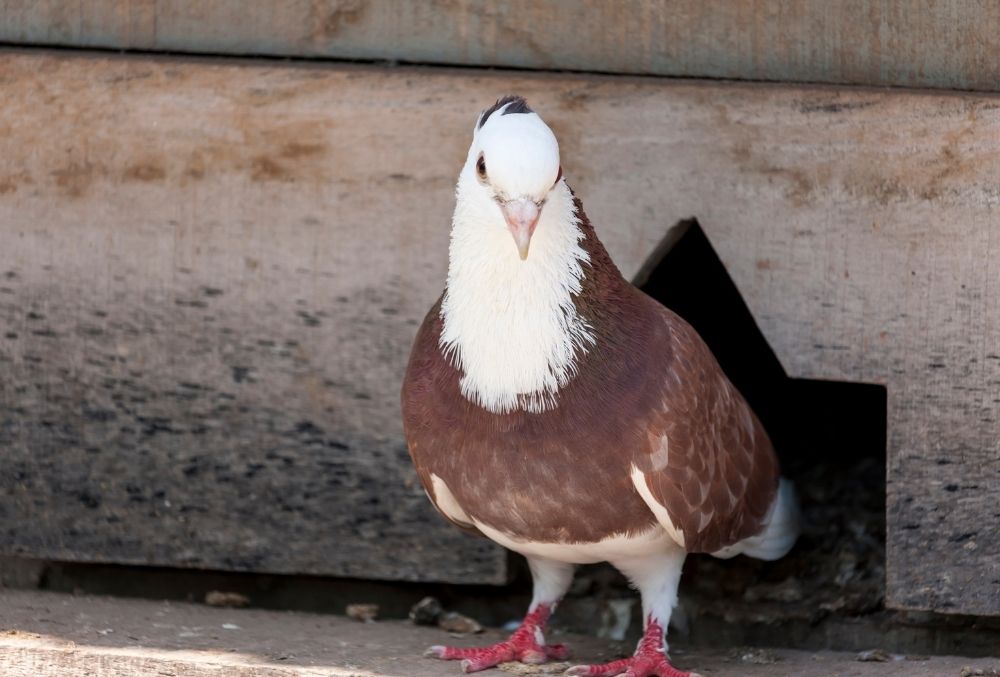
Worms are commonly found in pigeons, so it’s a good idea to have a worming product to hand that lets you quickly get rid of this problem and ensure your pigeon is in good health.
The signs that your pigeon may have worms isn’t always obvious however, and so it’s also good to know how to spot the symptoms and how exactly worms affect your pigeon’s health.
Below, you’ll find five of the best worming solutions for pigeons as well as how to administer worming medication, how often you should administer it, as well as some more health issues affecting pigeons and the diseases they carry.
Why Do Pigeons Get Worms?
All birds can get worms. However, some species of birds are more likely to get worms than others. But keeping birds in a clean, suitable environment can reduce the risk of them getting worms.
For example, if your pigeon’s enclosure has a concrete floor then that can help to reduce the spread of worms but since worms live in a bird’s gut, this doesn’t eliminate the chance of your pigeons getting worms completely.
It’s pretty easy for pigeons to get worms, as they are spread via feces. Therefore, if your pigeon comes into contact with feces that are infested with worms, it is likely those worms are going to pass onto them.
A pigeon with worms will become infectious after 14 days, but the infection itself can last for years.
Pigeons are more likely to get worms when they are foraging for food in an area that is infected.
Some nesting materials can also give pigeons worms, and even living with a new cage mate or coming into contact with wild birds can give pigeons worms.
What Are The Symptoms Of Worms?
It can be difficult to know if your pigeon has worms, especially since some pigeons display no symptoms. However, in some very serious cases, worms can be fatal and kill your pigeon fairly quickly.
However, the most common symptoms include weight loss, distress, poor feather condition, ruffled feathers, and fatigue.
You may also notice that your pigeon isn’t as active, and they’re laying fewer eggs than usual, or maybe none at all. If you spot any of these symptoms in your pigeon, act fast, as catching the worms early makes treatment more effective.
Why Are Worms So Bad?
Just because worms in pigeons - and pretty much all birds - are fairly common, this doesn’t mean it’s not serious, or that you should be complacent.
Worms act quickly, laying eggs in your pigeon’s digestive tract. These eggs will then hatch and require nourishment.
Worms get their nourishment by absorbing all the vitamins and minerals in your pigeon’s gut, leaving little nutrition for your pigeon.
This has a big impact on your pigeon’s health and can lead to malnourishment. If there’s too many worms in your pigeon’s system then they can also cause tissue damage to the intestines.
Roundworms are not as common, but can affect the outside of your pigeon’s body and cause skin irritation.
Harkers 3-in-1 Soluble
This dewormer contains amprolium, levamisole, and ronidazole. It’s also simple to administer and can be diluted into your pigeon’s water. One liter of water requires one 6ml capful of the solution.
You should administer this to your pigeons every day for a week, making up a fresh mixture each day and disposing of the old mixture.
However, this dewormer isn’t ideal if you have more than one pigeon you’re treating at a time, or if your pigeon is under two months of age. You should also not use this dewormer during molting season, or when they’re hatching.
Wormer Gel
Wormer gel is a water-soluble worming treatment that can treat several kinds of worm infestations, and can either be mixed in with your pigeon’s drinking water or mixed in with their food.
When used in water, combine 2 ml with 160 mil of water and give this to your pigeon for two days.
When used in food, mix 0.05 ml for each 100 g of body weight and make sure your pigeon has eaten all of their food within 24 hours. Wormer gel can also be administered via a crop syringe if needed.
Easimec Ivermectin
The main ingredient in this dewormer solution is ivermectin, and like moxidectin is an incredibly effective worming ingredient.
This product doesn’t just get rid of worms, but can treat other pests and is applied to your pigeon’s neck to treat roundworms, once a week for three weeks.
Every week apply three to six drops of the medication (2 to 3 drops per kg of weight). This solution is most often applied to racing pigeons.
Easifen Liquid Wormer
This is a true all-rounder dewormer, as it can be used to treat several types of worms, including roundworms and even tapeworms.
The main ingredient in this solution is oxfendazole and is not suitable for pigeons under eight weeks old.
To use, mix the whole 100 ml bottle with 5 liters of water and administer according to instructions from your vet. This product can also be mixed with corn. When mixing with corn, use 10 ml for every 30 birds.
This solution can also be added to soft food for caged pigeons.
Moxidectin Concentrate
This treatment couldn’t be simpler to administer. Just dilute 50 ml in 1 gallon of water and give that to your pigeon to drink for 24 hours. For the best results, repeat the treatment three to four weeks later.
The main ingredient in this product is moxidectin which is an effective worming ingredient. Moxidectin Concentrate is also one of the cheaper deworming solutions.
How To Choose The Right Product For You
It’s important to get the right worming product for your pigeon, depending on their age, the type of worms they have, and whether or not your pigeon is hatching.
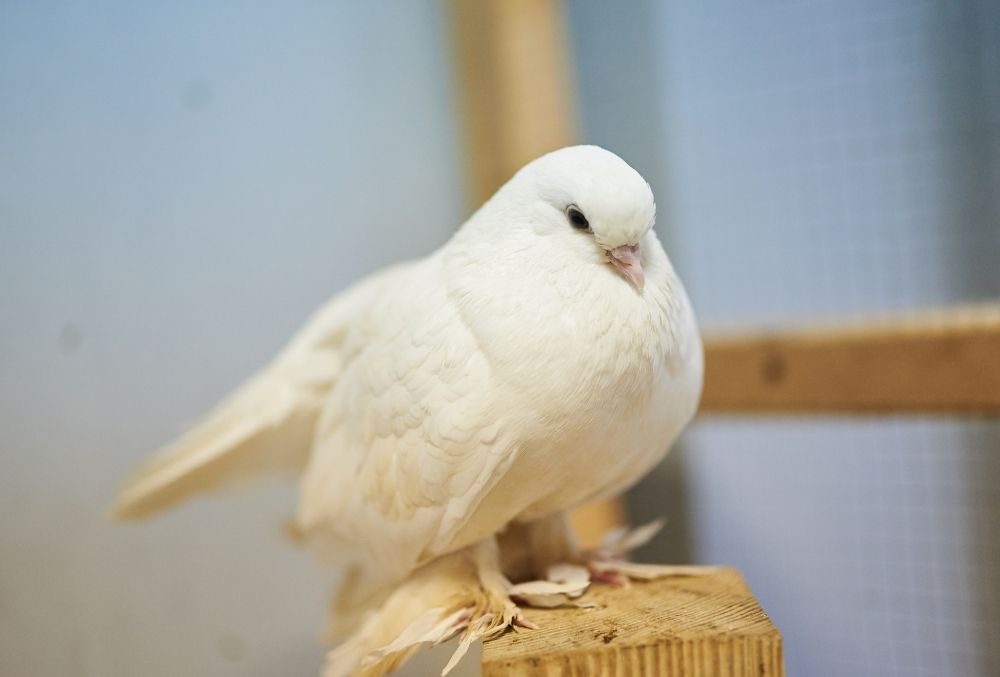
Oxfendazole and praziquantel are recommended ingredients, as they are both effective and safe to use. Other effective ingredients include amprolium, diclazuril, fenbendazole, moxidectin, and ronidazole.
Piperazine was once the recommended deworming solution, but its effectiveness has decreased due to worms becoming more resistant to the substance. Levamisole is also highly effective, but very powerful and can be lethal in high doses.
Administering Worming Products
There are a few ways to administer worming treatments to your pet pigeon, and the most common way is to mix the medication with water.
To do this effectively, remove all other water and food sources from the pigeon’s coop so your pigeon is more likely to drink the medicated water.
However, the medication will make the water bitter, so to make the water more enticing for your pigeon, add a little orange juice to it.
Other deworming methods come in the form of tablets that you gently press down your bird’s throat and drops that are applied topically.
If you’re unsure about the best way to administer deworming medication to your pigeon, discuss with your vet.
When Should I Deworm My Pigeon?
The best way to ensure your pigeon is effectively treated for worms is to stick to a consistent worming schedule.
It's recommended to worm your pigeon four times a year, or every three months. It’s also best to worm before breeding season and when the baby pigeons leave the nest.
This prevents the baby pigeons from getting worms and makes sure your pet pigeon is healthy throughout the year.
Other Pigeon Health Issues To Be Aware Of
Most pigeon owners will have to deal with their pigeons getting worms, but your pigeon can also catch other diseases and illnesses too that you should be aware of.
Let’s take a look at some of them.
- Canker: A contagious breathing disorder that can spread among pigeons.
- Chlamydia: This can cause respiratory problems.
- Coccidia: An intestinal parasite that can make your pigeon lose weight and lead to malnourishment.
- Flies, lice, and mites: Can irritate the skin and cause feather loss.
- Mycoplasma: A respiratory disease that causes coughing, sneezing, nasal discharge, and can lead to trouble breathing.
Your vet can give you guidance on how to create the best environment possible to prevent your pigeon from catching these diseases.
But keeping their enclosure clean and not too crowded, feeding your pigeon a healthy diet and keeping them hydrated are simple ways to reduce the chances of your pigeon catching these diseases.
What Diseases Do Pigeons Carry?
Pigeons can also carry diseases that are harmful to us, and it is estimated that pigeons carry about 60 varieties of pathogens, although most of them are harmless to humans.
Pigeons pass on these pathogens to humans via their feces. These dry out, crumble and become dust. This dust can be inhaled through the nose or mouth, or even contaminate food.
Let’s take a look at some common diseases that pigeons can pass on to humans:
- Candidiasis: A respiratory disease that affects the lungs, mouth and skin. Interestingly, women are more likely to catch this disease than men.
- E. Coli: One of the most common and dangerous diseases for pigeons to pass on to humans, E. Coli can be contracted from contact with wet pigeon droppings contaminating food or potable water.
- Histoplasmosis: A respiratory disease caused by a fungus in pigeon droppings.
- Salmonellosis: Also known as food poisoning, salmonellosis can be passed on via particles in dried droppings contaminating food.
Pigeon Fancier’s Lung: Also known as hypersensitivity pneumonitis, this disease is so named because of how exposed pigeon fanciers and racing enthusiasts are to it.
Since they come into frequent contact with pigeons, they can inhale avian proteins from their feathers and droppings. It causes flu-like symptoms, such as dry coughing, fever, aching bones and shortness of breath. If left untreated it can also be fatal.
Final Thoughts
We hope that you now have all the information you need on worming your pigeon, from what solutions are available, to what the symptoms are, and how important it is to deworm your pigeon on a regular basis.
Before buying a worming solution for your pet pigeon, remember to always consult your vet on what the best treatment is for your pigeon.


